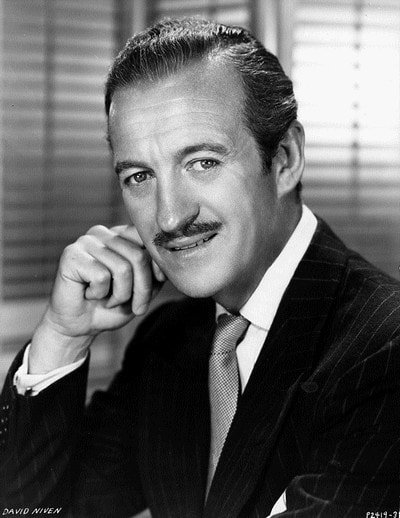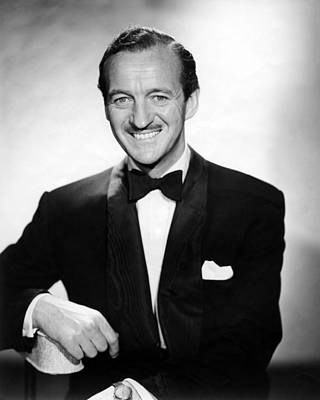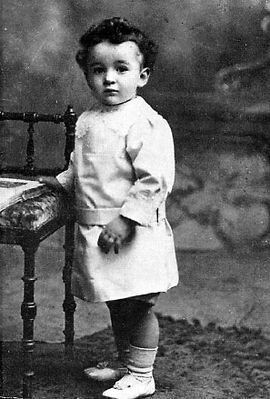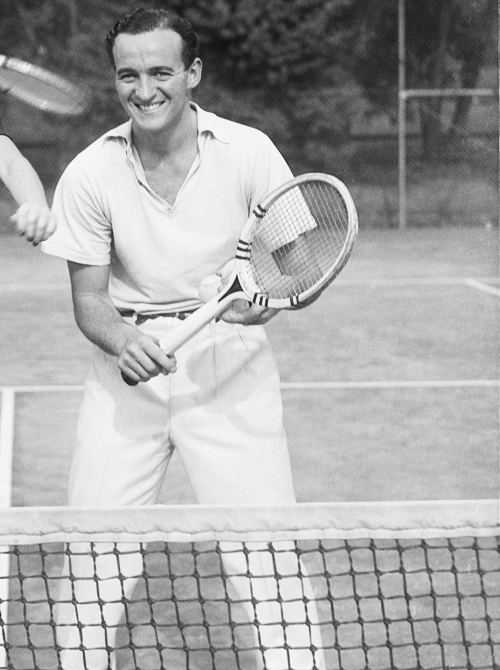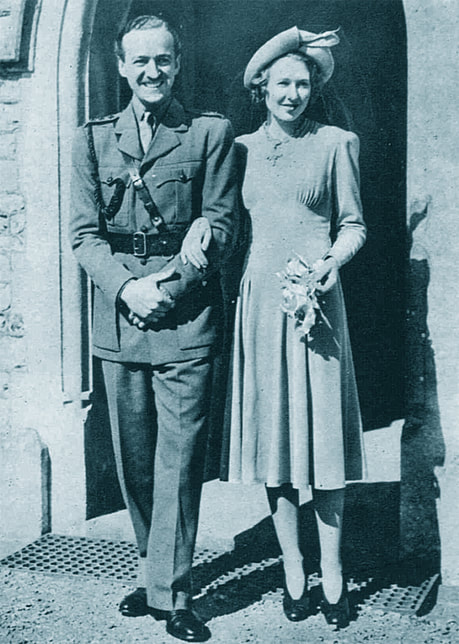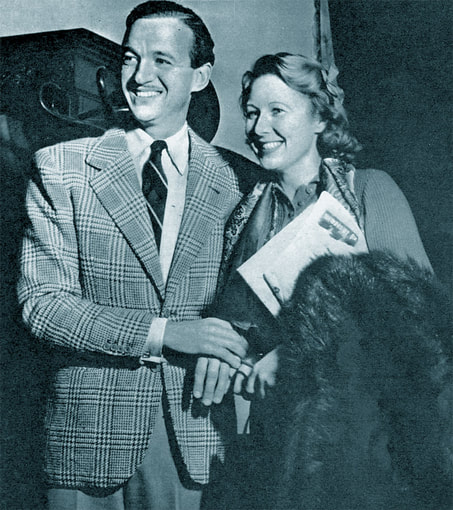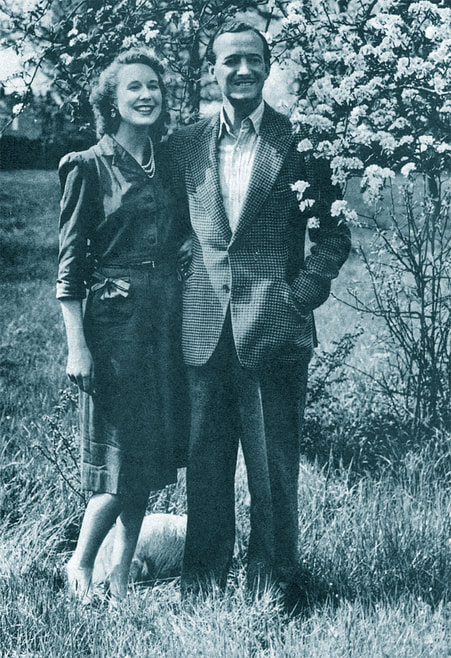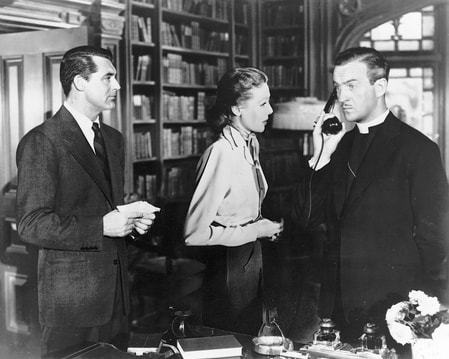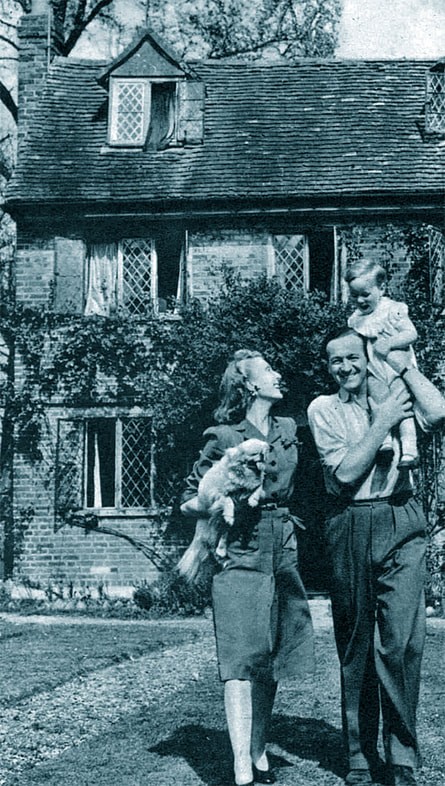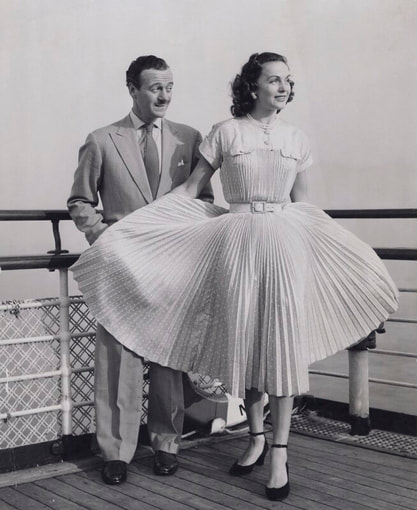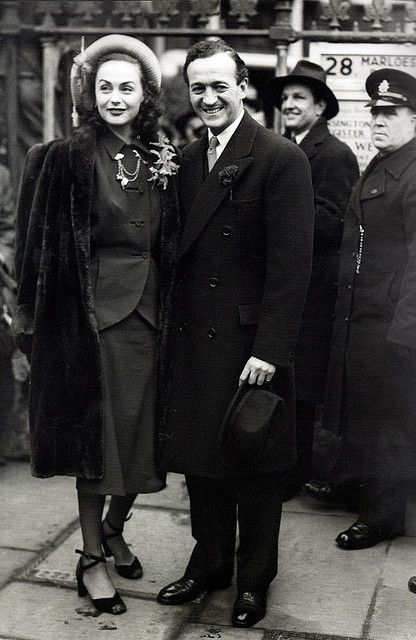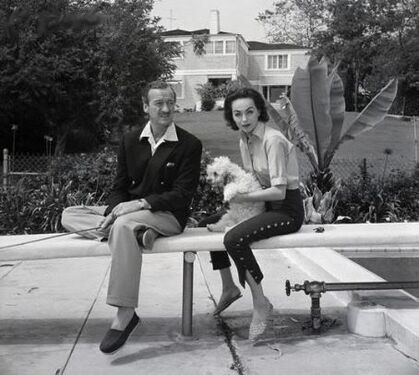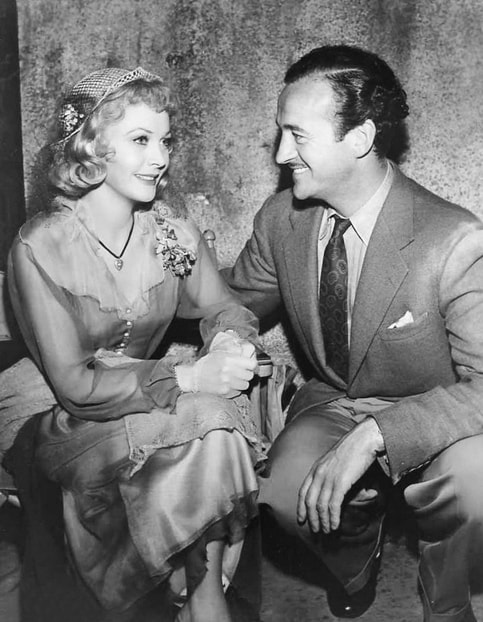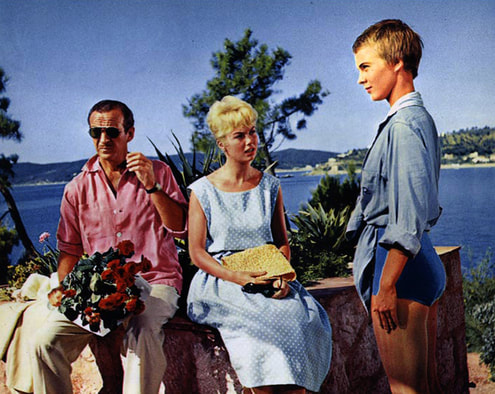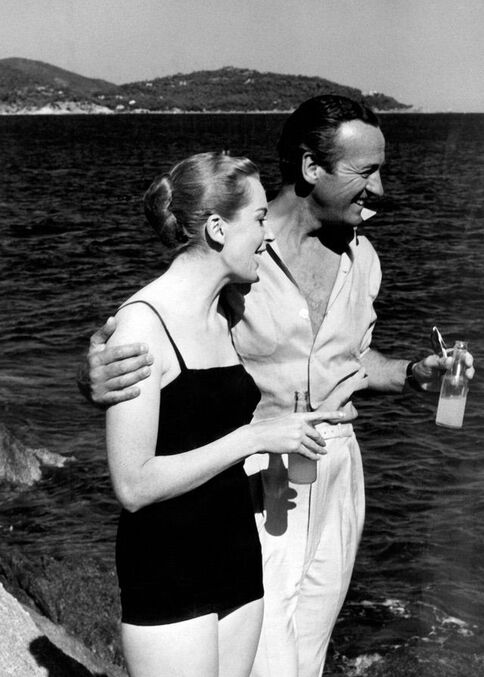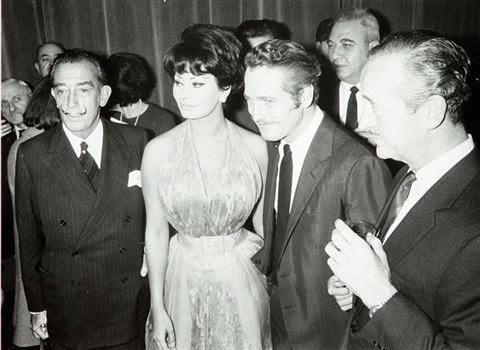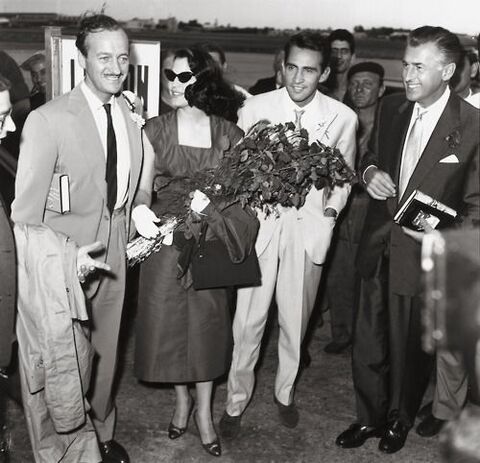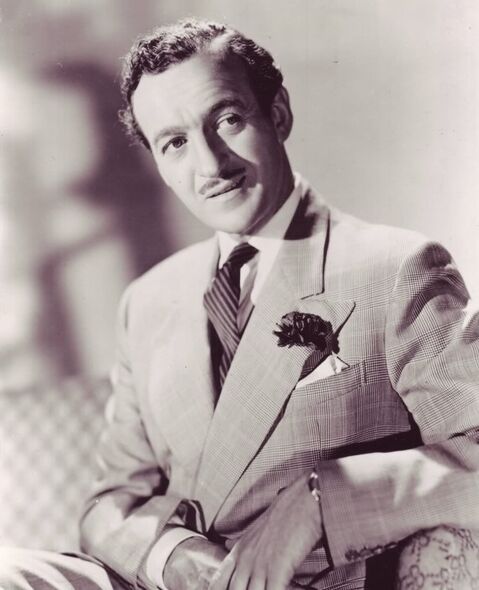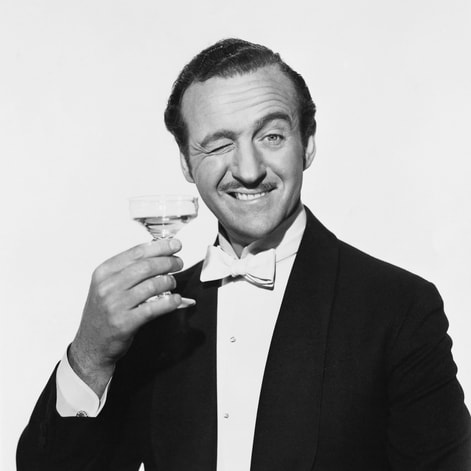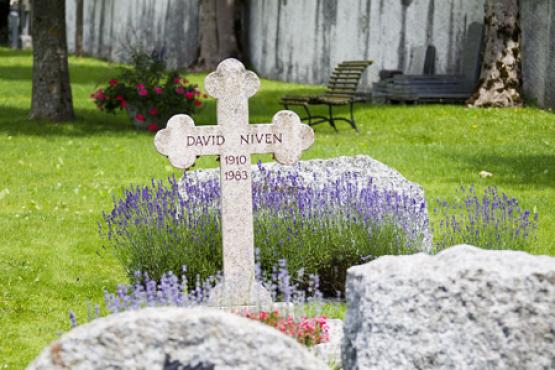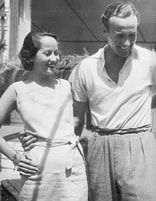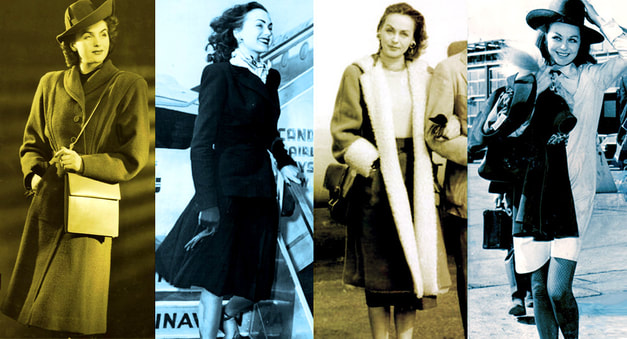ProfileJames David Graham Niven (1 March 1910 – 29 July 1983) was an English actor, memoirist and novelist. He won the Academy Award for Best Actor for his performance as Major Pollock in Separate Tables (1958). Other noted roles included Squadron Leader Peter Carter in A Matter of Life and Death, Phileas Fogg in Around the World in 80 Days, Sir Charles Lytton ("the Phantom") in The Pink Panther and James Bond in Casino Royale (1967). Born in London, Niven attended Royal Military College, Sandhurst then joined the British Army. Upon developing an interest in acting he found a role as an extra in the British film There Goes the Bride (1932). Bored with the peacetime army, he resigned his commission in 1933, relocated to New York, then traveled to Hollywood. There he hired an agent and had several small parts in films through 1935, including a non-speaking role in Metro-Goldwyn-Mayer's Mutiny on the Bounty. This brought him to wider attention within the film industry, catching the eye of Samuel Goldwyn and leading to a contract. By 1938 he was starring as the leading man in 'A' films. Upon the outbreak of the Second World War, Niven returned to Britain and rejoined the army, being recommissioned as a lieutenant. Niven resumed his acting career after his demobilisation, and was voted the second-most popular British actor in the 1945 Popularity Poll of British film stars. He appeared in A Matter of Life and Death (1946), The Bishop's Wife (1947) with Cary Grant, and Enchantment (1948), all of which received critical acclaim. Niven later scored a big success as Phileas Fogg in Michael Todd's production of Around the World in 80 Days (1956). Niven appeared in nearly a hundred films, and many shows for television. He also began writing books, with considerable commercial success. In 1982 he appeared in Blake Edwards' final "Pink Panther" films Trail of the Pink Panther and Curse of the Pink Panther, reprising his role as Sir Charles Lytton. BiographyJames David Graham Niven was born on 1 March 1910 at Belgrave Mansions, Grosvenor Gardens, London, to William Edward Graham Niven (1878–1915) of Scottish descent, and his wife, Henrietta Julia Niven, of French and Welsh ancestry. He was named David after his birth on St David's Day. He had two older sisters and a brother, and his sister the sculptor Grizel Rosemary Graham (1906 – 2007) created the bronze sculpture Bessie that is presented to the annual winners of the Women's Prize for Fiction. David Niven's father was killed in the First World War on 21 August 1915. Following the death of her husband, Henrietta Niven married Sir Thomas Comyn-Platt in London in 1917. Niven was expulsed from Heatherdown Preparatory School thus ended his chances for Eton College, a significant blow to his family. After failing to pass the naval entrance exam because of his difficulty with maths, Niven attended Stowe School, a newly created public school led by headmaster J. F. Roxburgh, who was unlike any of Niven's previous headmasters. Thoughtful and kind, he addressed the boys by their first names, allowed them bicycles, and encouraged and nurtured their personal interests. In 1928, Niven attended the Royal Military College, Sandhurst. He graduated in 1930 with a commission as a second lieutenant in the British Army. He did well at Sandhurst, which gave him the "officer and gentleman" bearing that was his trademark. Niven grew tired of the peacetime army, and escaped to America. While crossing the Atlantic, Niven resigned his commission by telegram on 6 September 1933. Niven then moved to New York City, where he began an unsuccessful career in whisky sales, after which he had a stint in horse rodeo promotion in Atlantic City. After detours to Bermuda and Cuba, he arrived in Hollywood in 1934. When Niven presented himself at Central Casting, he learned that he needed a work permit to reside and work in the United States. This meant that Niven had to leave the US, so he went to Mexico, where he worked as a "gun-man", cleaning and polishing the rifles of visiting American hunters. He received his resident alien visa from the American consulate when his birth certificate arrived from Britain. He returned to the US and was accepted by Central Casting as "Anglo-Saxon Type No. 2,008." Niven's role in Mutiny on the Bounty brought him to the attention of independent film producer Samuel Goldwyn, who signed him to a contract and established his career. Niven’s first sizeable part for Goldwyn came in Dodsworth (1936), playing a man who flirts with Ruth Chatterton, and he graduated to star parts in "A" films with The Dawn Patrol (1938) remake at Warners; he was billed after Errol Flynn and Basil Rathbone but it was a leading role and the film did excellent business. The day after Britain declared war on Germany in 1939, Niven returned home and rejoined the British Army. He was alone among British stars in Hollywood in doing so; the British Embassy advised most actors to stay. Niven was recommissioned as a lieutenant into the Rifle Brigade (Prince Consort's Own) on 25 February 1940. While on leave in 1940, Niven met Primula "Primmie" Susan Rollo (18 February 1918, London – 21 May 1946), the daughter of London lawyer William H.C. Rollo. After a whirlwind romance, they married on 16 September 1940. A son, David, Jr., was born in December 1942 and a second son, James Graham Niven, on 6 November 1945. On 14 March 1944, Niven was promoted war-substantive major (temporary lieutenant-colonel). He took part in the Allied invasion of Normandy in June 1944, although he was sent to France several days after D-Day. Niven ended the war as a lieutenant-colonel. On his return to Hollywood after the war, he received the Legion of Merit, an American military decoration. Niven resumed his career while still in England, playing the lead in A Matter of Life and Death (1946), from the team of Powell and Pressburger. The movie was critically acclaimed, popular in England and was selected as the first Royal Film Performance. Niven returned to Hollywood, and encountered tragedy when his first wife Primmie died at the age of 28 after falling down a flight of stairs at a party in the Beverly Hills, California home of Tyrone Power, while playing a game of hide-and-seek. Niven made a few films in Hollywood, such as The Bishop's Wife (1947), Enchantment (1948), A Kiss for Corliss (1949). None of these films were successful at the box office and Niven's career was struggling. In 1948, Niven met Hjördis Paulina Tersmeden (née Genberg, 1919–1997), a divorced Swedish fashion model. He recounted their meeting: I had never seen anything so beautiful in my life – tall, slim, auburn hair, up-tilted nose, lovely mouth and the most enormous grey eyes I had ever seen. It really happened the way it does when written by the worst lady novelists ... I goggled. I had difficulty swallowing and had champagne in my knees. After a few more unremarkable films, Niven decided to try Broadway, appearing opposite Gloria Swanson in Nina (1951–52). The play only ran for 45 performances but it was seen by Otto Preminger who decided to cast Niven in the film version of the play The Moon Is Blue (1953). The Moon Is Blue, a sex comedy, became notorious when it was released without a Production Code Seal of Approval; it was a big hit and Niven won a Golden Globe Award for his role. Niven also became heavily involved in American TV as a partner in Four Star Television, a company he established with Dick Powell and Charles Boyer. It ended up producing a considerable number of shows, in several of which Niven appeared. Four Star TV became a highly successful TV production company. Niven's professional fortunes were completely restored when cast as Phileas Fogg in Around the World in 80 Days (1956), a huge hit at the box office. Niven won the 1958 Academy Award for Best Actor for his role as Major Pollock in Separate Tables, his only nomination for an Oscar. Appearing on-screen for only 23 minutes in the film, this is the briefest performance ever to win a Best Actor Oscar. With an Academy Award to his credit, Niven's career continued to thrive. In 1959, he became the host of his own TV drama series, The David Niven Show, which ran for 13 episodes that summer. In 1960, Niven moved to Château-d'Œx near Gstaad in Switzerland for financial reasons, living near expatriate friends that included Deborah Kerr, Peter Ustinov, and Noël Coward. He divided his time in the 1960s and 1970s between Château-d'Œx and Cap Ferrat on the Côte d'Azur in the south of France. Niven appeared as James Bond 007 in Casino Royale (1967). Niven had been Bond creator Ian Fleming's first choice to play Bond in Dr. No. Casino Royale co-producer Charles K. Feldman said later that Fleming had written the book with Niven in mind, and therefore had sent a copy to Niven. Niven was in demand throughout the last decade of his life. In July 1982, Blake Edwards brought Niven back for cameo appearances in two final "Pink Panther" films (Trail of the Pink Panther and Curse of the Pink Panther), reprising his role as Sir Charles Lytton. By this time, Niven was having serious health problems. This was his last film appearance. Niven wrote four books. The first, Round the Rugged Rocks (published simultaneously in the US under the title Once Over Lightly), was a novel that appeared in 1951 and was forgotten almost at once. In 1971, he published his autobiography, The Moon's a Balloon, which was well received, selling over five million copies. He followed this with Bring On the Empty Horses in 1975, a collection of entertaining reminiscences from Hollywood's "Golden Age" in the 1930s and 1940s. A raconteur rather than a mere memorialist, it now appears that Niven recounted many incidents from a first-person perspective that actually happened to other people, especially Cary Grant, which he borrowed and embroidered. In 1981 Niven published a second and much more successful novel, Go Slowly, Come Back Quickly, which was set during and after the Second World War, and which drew on his experiences during the war and in Hollywood. He was working on a third novel at the time of his death. In 1980, Niven began experiencing fatigue, muscle weakness, and a warble in his voice. His 1981 interviews on the talk shows of Michael Parkinson and Merv Griffin alarmed family and friends; viewers wondered if Niven had either been drinking or suffered a stroke. He blamed his slightly slurred voice on the shooting schedule on the film he had been making, Better Late Than Never. He was diagnosed with amyotrophic lateral sclerosis (ALS, also known as "Lou Gehrig's disease") later that year. His final appearance in Hollywood was hosting the 1981 American Film Institute tribute to Fred Astaire. In February 1983, using a false name to avoid publicity, Niven was hospitalised for 10 days, ostensibly for a digestive problem; afterwards he returned to his chalet at Château-d'Œx. His condition continued to worsen, but he refused to return to the hospital, a decision supported by his family. He died at his chalet from ALS on 29 July 1983, aged 73. David Niven's body was buried in the local cemetery. In 1985, Niven was included in a series of British postage stamps, along with Sir Alfred Hitchcock, Sir Charles Chaplin, Peter Sellers and Vivien Leigh, to commemorate "British Film Year". Further interestArticles Websites
0 Comments
Leave a Reply. |
Categories
All
Archives
December 2023
|
